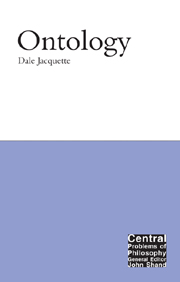Conclusion: scientific–philosophical ontology
Summary
Modality of being
The problem of ontology is to understand the concept of being, of what it means for something to exist. Ontology investigates the fact, nature and modal status of being, in the course of which it proposes a preferred ontology that is supposed to include all and only existent things. To be successful, ontology must combine a correct pure philosophical ontology with a correct applied scientific ontology, grafting an appropriate preferred existence domain onto a satisfactory analysis of the concept of being.
The proposed theoretical domain must correspond exactly with the extant domain of actually existent entities and states of affairs that constitute the actual world in order for the application of a correct concept of being to be judged satisfactory in an integrated philosophical–scientific ontology. The question of precisely how the concept of being should be understood, and whether at any point we can know with epistemic certainty that we have brought about the positive correlation of theory with reality, are among the difficulties that sustain philosophical controversy in the field of ontology.
What, it is often deemed independently interesting to know, is the most economical ontology needed to keep science and extrascientific discourse afloat? If we confine our attention exclusively to questions of scientific ontology, then we will be avoiding rather than helping to answer the conceptually more basic questions of philosophical ontology, and we risk doing so in violation of the more general higher-order principles of philosophical ontology, and trying to answer the question of what particular things and kinds of things exist without first knowing what it means for anything whatsoever to exist.
- Type
- Chapter
- Information
- Ontology , pp. 275 - 280Publisher: Acumen PublishingPrint publication year: 2002

